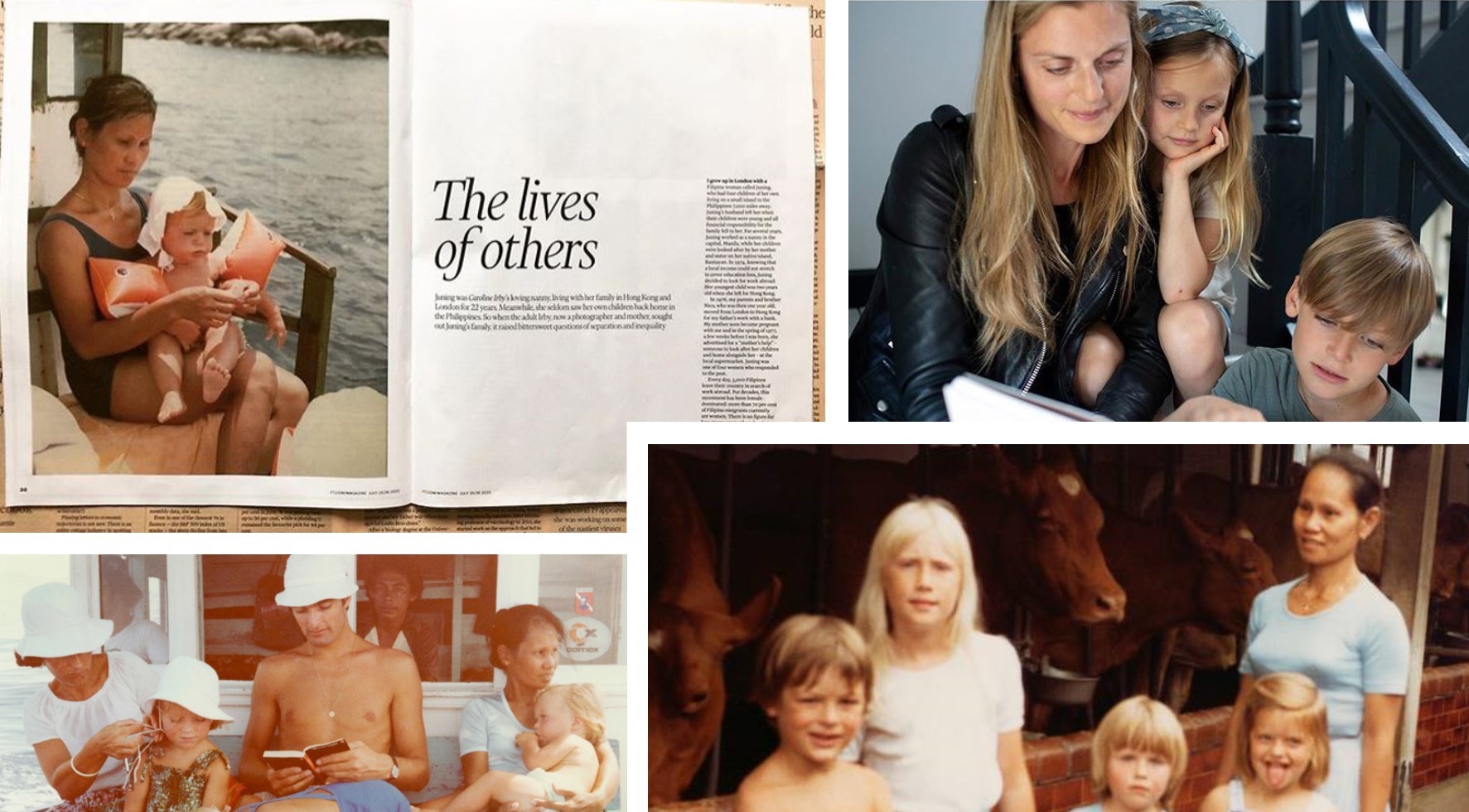It was in the year 1974 when Nanay Juning, a resident of Bantayan, Cebu, had decided to look for work abroad since she was getting a meager salary as a nanny in Manila and could not suffice to send all her four children to school.
Driven by the gargantuan task of raising all her children alone as a single mother, Nanay Juning journeyed to Hong Kong. There, she met Irby’s family and applied as household help.
Irby’s family was not originally from Hong Kong; their family just moved there from London after the father got a work at a bank.
When the family decided to go back to England, they took Nanay Juning with them in 1979.
She was 7,000 miles away from her home and had spent 22 years of her life working for them. In between those times, Nanay Juning could only come home to her children every two years over Easter and spend a month with them.
Irby, who is now all grown-up and has a family of her own, wrote about her life growing up with a Filipina as her nanny and somehow her second mother in a book called “Someone Else’s Mother”.
It narrates Nanay Juning’s struggles as an OFW, who had to leave their home in Cebu to earn for the family, as well as her story as a mother who didn’t get to see her children grow for the most part of their lives. Instead, she poured her love and care to Caroline and her brother Nico.
As a mother herself now, Caroline could only imagine the pain that her nanny had to endure as she also did a photo essay of them and at the same time conducted interviews with her children during her several visits to the island municipality of Bantayan.
In an edited extract of Caroline’s book on The Financial Times, she was quoted saying, “She would greet us enthusiastically, but through conversations I have now had with Nanay Juning and her children, I know how fraught her departure from the island a few days earlier would have been, and can only imagine how she may have felt on returning to our home, knowing it would be two years before she would see her children again.”
Her latest visit to Bantayan was last 2018. Every time she visits the place, she gets to meet Nanay Juning’s children – Roly, Roel, Erma, and Roy – who have a family of their own and are now professionals.
Roy, Nanay Juning’s youngest child, was only two years old when her mother first left for work abroad. He is now an IT specialist on a cruise ship in the Caribbean.
He recalled that it was only when he turned 15 that he started to call Nanay Juning as his “Mama”.
Their communication also back then was only through snail mail. When the time that the telephone became available in the province, they would always talk every Sunday about school, tuition, and if they still have food on their table.
Caroline narrated that during one of her past conversations with her former nanny, the latter told her, “I didn’t see their first communion or their confirmation because I was in London, and I didn’t see them growing because I used to come home for a holiday every two years, so I was really sorry that they were growing up without me.”
It made Caroline realize that she had two mothers by her side at that time while Nanay Juning’s four children didn’t.
Nanay Juning, who will turn 81 this coming October, has already retired and went home to Bantayan. It was unclear when she settled for good in the Philippines. But what’s apparent was that she and Caroline did not lost their communication.
Like any other OFW mothers who have been away from their children, Nanay Juning said she had regrets in coming home here because her children are now away from her also living their own lives.
When she was asked if would do the same thing given another shot at life, the former OFW said, “Yes, I’d still be with you.”
If she had the opportunity, Nanay Juning said she would have loved to go back to London and buy herself a house in Notting Hill.
Caroline’s story about her nanny Juning tells that both OFWs and their family bear the brunt of the social cost of migration. For as long as there are OFW mothers, there will be children under the care of two mothers. On the other side, other children may have to look at pictures to fill the void of having one.




